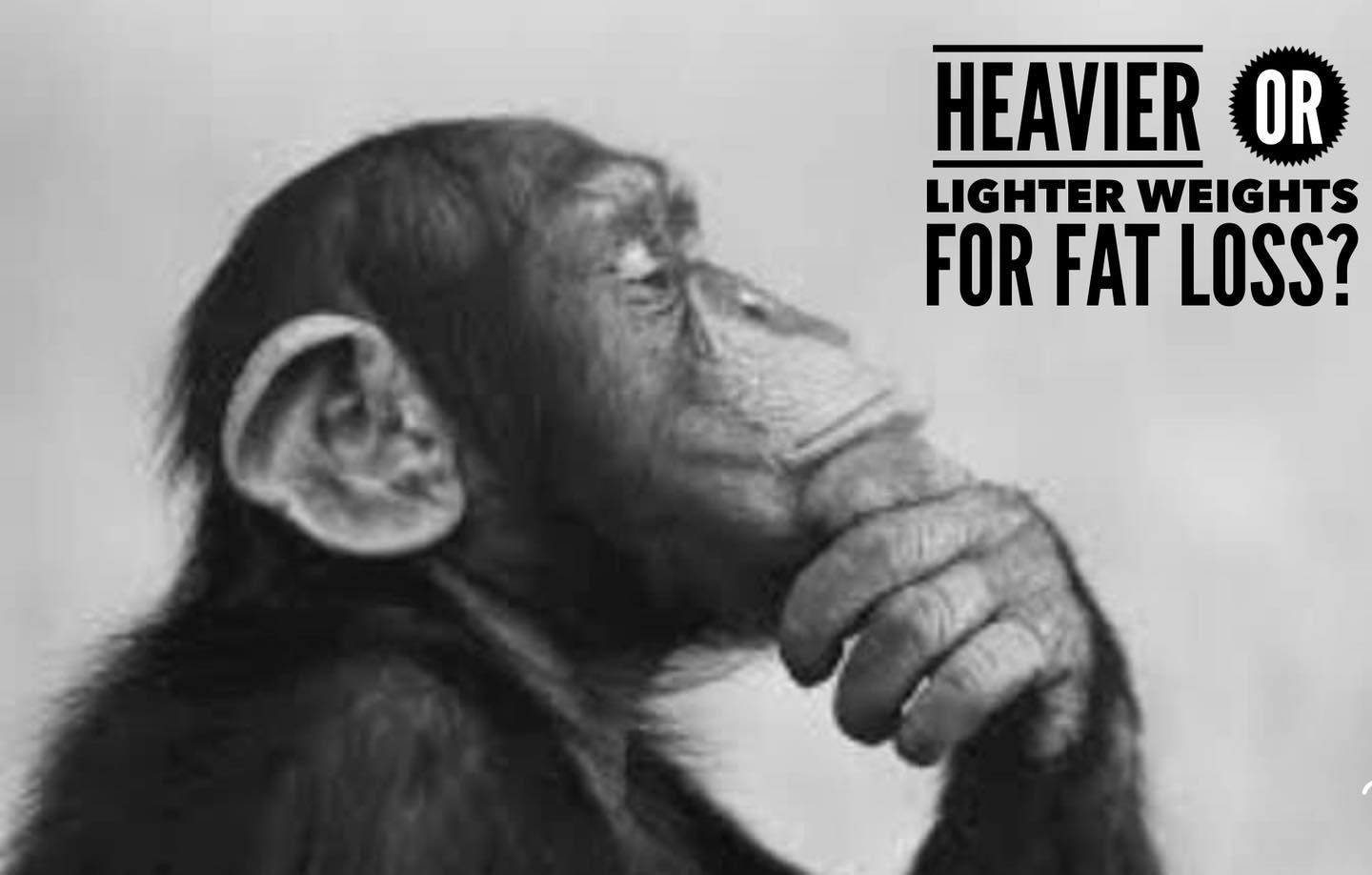If fat loss is your goal, your aim will likely be to burn as many calories as possible in as little time as possible. The best way to do this is to elevate your heart rate thus burning calories.
If you’re lifting weights/doing resistance training, lifting weights close to your maximum potential will get your heart rate up more than lifting at 50% of what you’re capable (in the same amount of time for example 60 seconds) because you’ll be putting more effort in. The added bonus to this is that you’ll be increasing your muscle definition (by breaking it down and rebuilding it, assuming adequate nutrition).
For example, if you want some muscle tone and definition, you’ll generally need to burn the fat off that’s covering your muscles for a start. You’ve all got a 6 pack, it’s maybe just hiding!
There’s no doubt that lifting lighter weights will help this process, but incorporating lifting heavier weights will do a few things:
1. Likely increase the calories you’re burning during your session.
2. Increase the calories you burn in the hours after your session.
3. Increase your strength.
4. Increased muscle mass generally means increased calorie burn throughout the day, even when you aren’t training.
So bottom line, the answer is yes, heavier may be slightly more efficient, although both are effective. It’s very important to lift lighter to begin with, ensuring technique is good. Build from there, but know that pushing boundaries as with any sport or activity in life comes with a small element of risk that you may strain a muscle here and there. I do believe that’ll happen most people at some point. Whether it be tying your shoe lace or lifting a weight, recover, work around it and move on 
“But what if my arms/legs start to look bulky??”
Then firstly there’s a good chance you aren’t in a calorie deficit. If you’re working muscles and in a calorie surplus it’ll increase the likelihood of gaining muscle. It’s difficult to put on much muscle in a calorie deficit, the best most people can hope for is to maintain lean muscle mass when losing fat. However, burning the fat off which covers a muscle will make it look more toned and defined, even if it hasn’t got bigger as such.
There’s a constant cycle that goes on in your muscles called ‘protein turnover’, muscle breaks down and rebuilds, all day every day. The more you work it, the more it’ll breakdown and assuming you have sufficient protein in your system (consumed through food), the more muscle will be formed. Lighter weights will generally mean less breakdown thus less rebuilding.
If you decide you’d rather lift lighter weights but your goal is fat loss, it puts an emphasis on burning more calories elsewhere. You could do this by doing more cardio, spending longer lifting weights or by consuming fewer calories. We would recommend incorporating heavier lifts, using both lower and higher rep ranges to provide different stimuli, however every individual’s body will respond differently to lifting weights. If you don’t like how lifting heavy weights makes you feel, there’s nothing in the law that says you have to. Do what works for you and makes you feel best!

